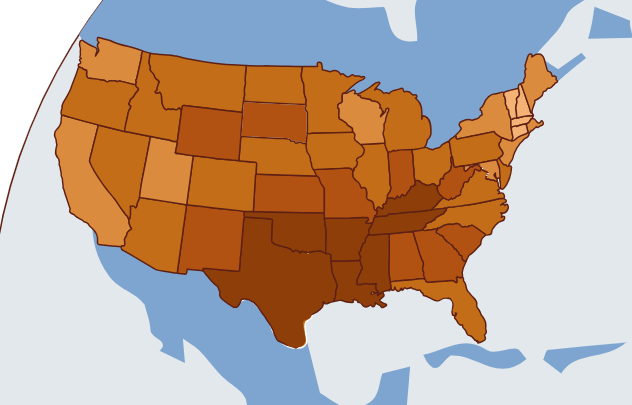Teen Pregnancy in Georgia
- Chinekwu Obidoa
- Nov 1, 2024
- 2 min read
Updated: Mar 27, 2025

Elevated Teen Pregnancy Rates in Georgia
Teen pregnancy remains a significant concern in Georgia, with rates consistently surpassing the national average. In 2022, Georgia reported a teen birth rate of 16.6 births per 1,000 females aged 15–19, higher than the national rate of 13.1 per 1,000. While the state has seen a decline in teen births over the past decade, the reduction has been less pronounced compared to national trends.
Key Takeaways:
Georgia's teen birth rate has remained higher than the national average.
While both Georgia and the U.S. have seen significant declines over time, the gap between them persists.
Aligning Georgia’s teen birth rate with the lower national average are a critical goal.
Why Georgia’s Story is Different
Unlike many states that have seen continued declines in teen pregnancy rates, Georgia faces unique challenges that have slowed progress. While the national trend suggests that teen pregnancy prevention efforts have been largely effective, Georgia’s situation highlights the limitations of one-size-fits-all solutions. Disparities in teen pregnancy rates are evident across Georgia. For instance, in 2022, Macon-Bibb County reported 19.5 teen pregnancies per 1,000 females aged 15–17, more than double the state average for this age group. Additionally, teenagers aged 18–19 in Georgia have a birth rate 4.5 times higher than those aged 15–17.
Racial Demographics of Teen Pregnancy in Georgia
Key Takeaways:
Hispanic teens contribute the largest proportion at 26.4%.
Multiracial (24.6%) and African American teens (23.4%) follow closely.
White teens (14.0%) and American Indian teens (10.1%) have smaller shares, while Asian teens represent just 1.2%.
The Need for Tailored Interventions
Despite various prevention programs, Georgia continues to face challenges in reducing teen pregnancy rates. The persistence of higher rates suggests that existing strategies may not fully address the unique factors influencing teen pregnancies in the state. Tailored interventions that consider Georgia's specific context are essential for more effective prevention. To effectively combat teen pregnancy in Georgia, a multifaceted approach is necessary. This includes enhancing access to reproductive health services, providing comprehensive sexual education, and engaging community stakeholders in prevention efforts. By addressing these areas, Georgia can work towards aligning its teen pregnancy rates more closely with national averages.
Sources:
Centers for Disease Control and Prevention (CDC), "Teen Births: State-Level Data for Georgia." Accessed 2024.
Georgia Department of Public Health (GDPH), "Adolescent Health and Youth Development FY23 Evaluation Report." Accessed 2024.
Georgia Department of Public Health (GDPH), "Online Analytical Statistical Information System (OASIS): Pregnancy." Accessed 2024.
Georgia Department of Public Health (GDPH), "Title V Maternal and Child Health Five-Year Needs Assessment." Accessed 2024.


Comments